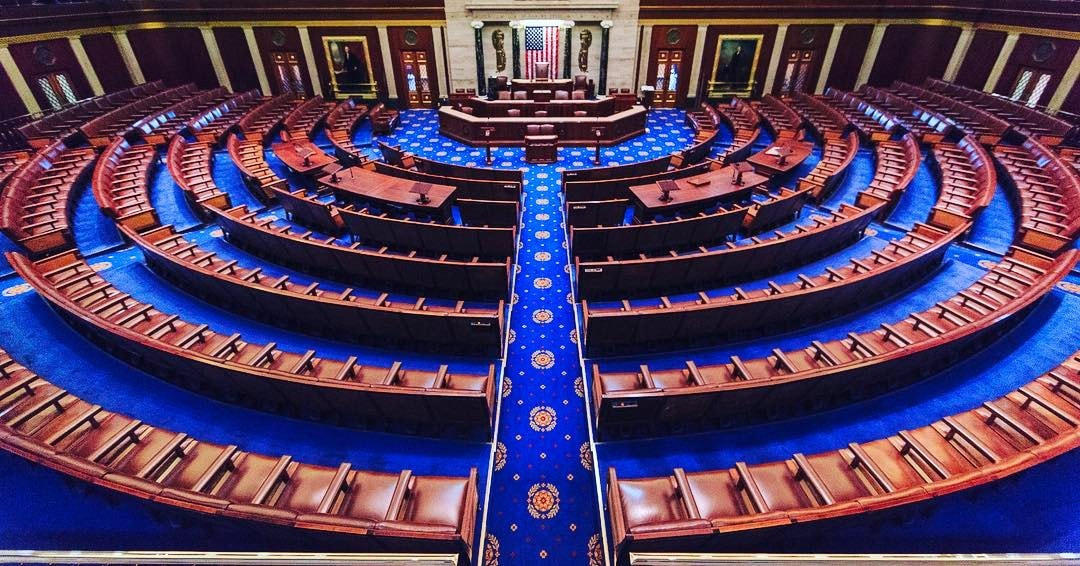Viewpoint: Donald Trump becomes a Digital Unperson. Good or bad? Discuss…
|
Let me be clear. I think Donald Trump is a narcissistic, lying, manipulative bully who has exposed the weaknesses of the boundaries of governance structures in the USA, which appear to rely on the goodwill and common sense of incumbent presidents. My first reaction to Twitter and Facebook banning his accounts was relief and glee. His prolific posting has led to a post-truth environment where anyone calls what they disagree with “fake news”. Timothy Snyder in the New York Times describes the consequences; “Truth defends itself particularly poorly when there is not very much of it around, and the era of Trump — like the era of Vladimir Putin in Russia — is one of the decline of local news. Social media is no substitute: It supercharges the mental habits by which we seek emotional stimulation and comfort, which means losing the distinction between what feels true and what actually is true.” However, as librarians we promote critical thinking and information literacy skills over censorship and try to inform and educate people about the risks of their own private information on social media and about the motivation of the companies that host the platforms. We have to ask whether the big tech and social media companies should have this much control over what is said and who can say it. |
“If the tech monopolies can deny a platform to the leader of the free world, then they can deny a voice to anyone” warns Fraser Myers in his article in The Telegraph. While in this instance the companies are independent from the government, Alexei Navalny, prominent Russian opposition leader and poison victim, warns that Silicon Valley’s actions bear the hallmarks of authoritarianism. “Of course, Twitter is a private company, but we have seen many examples in Russia and China of such private companies becoming the state’s best friends and the enablers when it comes to censorship,”
Myers describes social media as the 21st century's public square. “To be denied a voice on these platforms is to be a digital unperson. When the mega-corporations of Silicon Valley pick and choose which voices can be heard, they are no longer neutral platforms. Rather, they are exercising an extraordinary power over our democracy. Their decisions are opaque and unaccountable, and yet are extraordinarily consequential.”
To question the authority of social media platforms to ban Trump is not to deny the harm that he has caused using them. His spite and vitriol deny the dignity and freedom of many already marginalised people in the USA. This is the dilemma and challenge that we face as librarians when we defend freedom of speech.
We seek to create safe, inclusive spaces (physical and online) that promote a sense of belonging for all. How do we deal with those people who use our spaces but who do not respect that and who diminish the safety of others?
In 1945, philosopher Karl Popper talked about the seemingly paradoxical idea that in order to maintain a tolerant society, the society must be intolerant of intolerance. “if we are not prepared to defend a tolerant society against the onslaught of the intolerant, then the tolerant will be destroyed, and tolerance with them… I do not imply … that we should always suppress the utterance of intolerant philosophies; as long as we can counter them by rational argument and keep them in check by public opinion, suppression would certainly be most unwise.” Popper goes on to say that society should claim the right to suppress them if necessary even by force, “for it may easily turn out that they are not prepared to meet us on the level of rational argument, but begin by denouncing all argument; they may forbid their followers to listen to rational argument, because it is deceptive, and teach them to answer arguments by the use of their fists or pistols.”
The January storming of Capitol Hill and the threats of armed demonstrations at state capitals ahead of the presidential inauguration illustrate the scenario Popper describes. The intolerance (and untruths) espoused by Trump and his supporters include open incitement to persecution and violence against others, which Popper argues should be treated as criminal.
But who should make the decision for society? Social media companies? What is their motivation? The timing of their decision in this instance could be seen cynically as carried out only as Trump becomes less influential at the end of his presidency.
PEN America who advocate for free speech support the disabling of Trump’s Twitter accounts because of “clear evidence that Trump’s tweets have not only denigrated truthful accounts of democratic processes but also sown insurrection”. They temper this by saying Twitter “has a lot more work to do to ensure transparency and accountability in how it moderates content, to explain how special criteria for leaders on the platform are applied, and to ensure that users who believe their content has been unjustifiably suppressed have ready and adequate recourse to appeal.”
As I write this Congress has just voted to impeach the President and he will face a Senate trial. This debate is the appropriate response of this body to the riots and Trump’s role in inciting them. Each individual and organisation can decide their response, and social media have done so by closing his accounts. It is the overwhelming role they play in sharing news, information and opinion in society that gives them a worrying authority over who gets to speak, which we need to question, as individuals, and particularly as librarians.
Myers describes social media as the 21st century's public square. “To be denied a voice on these platforms is to be a digital unperson. When the mega-corporations of Silicon Valley pick and choose which voices can be heard, they are no longer neutral platforms. Rather, they are exercising an extraordinary power over our democracy. Their decisions are opaque and unaccountable, and yet are extraordinarily consequential.”
To question the authority of social media platforms to ban Trump is not to deny the harm that he has caused using them. His spite and vitriol deny the dignity and freedom of many already marginalised people in the USA. This is the dilemma and challenge that we face as librarians when we defend freedom of speech.
We seek to create safe, inclusive spaces (physical and online) that promote a sense of belonging for all. How do we deal with those people who use our spaces but who do not respect that and who diminish the safety of others?
In 1945, philosopher Karl Popper talked about the seemingly paradoxical idea that in order to maintain a tolerant society, the society must be intolerant of intolerance. “if we are not prepared to defend a tolerant society against the onslaught of the intolerant, then the tolerant will be destroyed, and tolerance with them… I do not imply … that we should always suppress the utterance of intolerant philosophies; as long as we can counter them by rational argument and keep them in check by public opinion, suppression would certainly be most unwise.” Popper goes on to say that society should claim the right to suppress them if necessary even by force, “for it may easily turn out that they are not prepared to meet us on the level of rational argument, but begin by denouncing all argument; they may forbid their followers to listen to rational argument, because it is deceptive, and teach them to answer arguments by the use of their fists or pistols.”
The January storming of Capitol Hill and the threats of armed demonstrations at state capitals ahead of the presidential inauguration illustrate the scenario Popper describes. The intolerance (and untruths) espoused by Trump and his supporters include open incitement to persecution and violence against others, which Popper argues should be treated as criminal.
But who should make the decision for society? Social media companies? What is their motivation? The timing of their decision in this instance could be seen cynically as carried out only as Trump becomes less influential at the end of his presidency.
PEN America who advocate for free speech support the disabling of Trump’s Twitter accounts because of “clear evidence that Trump’s tweets have not only denigrated truthful accounts of democratic processes but also sown insurrection”. They temper this by saying Twitter “has a lot more work to do to ensure transparency and accountability in how it moderates content, to explain how special criteria for leaders on the platform are applied, and to ensure that users who believe their content has been unjustifiably suppressed have ready and adequate recourse to appeal.”
As I write this Congress has just voted to impeach the President and he will face a Senate trial. This debate is the appropriate response of this body to the riots and Trump’s role in inciting them. Each individual and organisation can decide their response, and social media have done so by closing his accounts. It is the overwhelming role they play in sharing news, information and opinion in society that gives them a worrying authority over who gets to speak, which we need to question, as individuals, and particularly as librarians.
 United States House of Representatives chamber at the United States Capitol in Washington, D.C. Public Domain.
United States House of Representatives chamber at the United States Capitol in Washington, D.C. Public Domain.
We cannot forget that freedom of speech for all implies a level playing field but that power and privilege are not equally distributed. A good resource on this is Moana Jackson’s reflections on indigenous experience of the free speech debate, where he states that “No one’s exercise of free speech should make others feel less free”
What can we do as library professionals?
What can we do as library professionals?
- As more people receive their information and opinions online, librarians need to be conscious of how access to information and freedom of expression are controlled and by whom, and of the consequences of that.
- We need to keep our users and communities informed and support them to navigate these complexities.
- The role of libraries in promoting critical thinking and information literacy should be our first line of defence.
- At the least librarians should keep themselves informed on issues of freedom of information and related professional issues. For LIANZA’s Statement on Freedom of information click here LIANZA-Statement-on-Freedom-of-Information-2020.pdf


